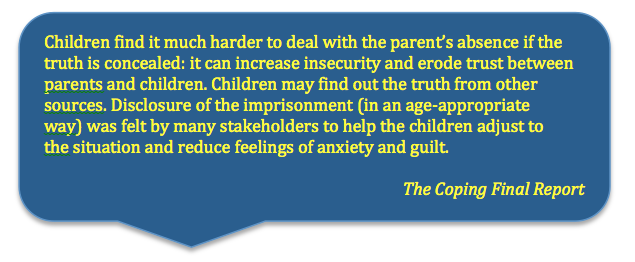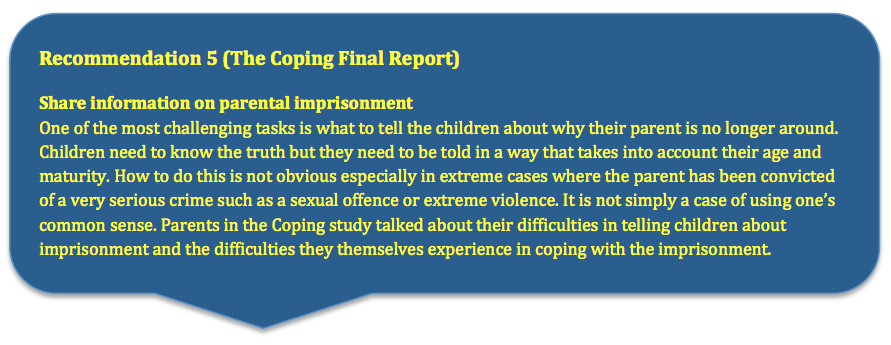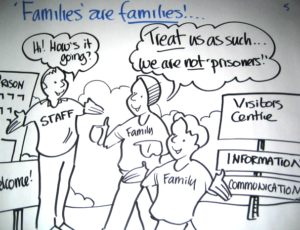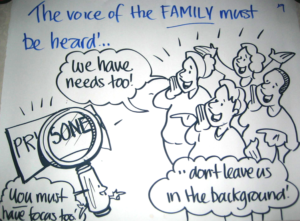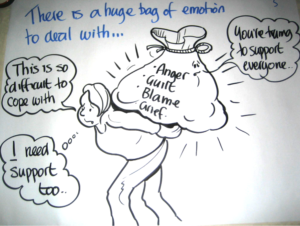This week, the focus of COPE’s campaign “Not my crime, still my sentence” is the importance of providing information, assistance and support for children of imprisoned parents. Receiving appropriate and timely information about their parent’s whereabouts and well-being is of crucial importance to a child. Lack of information may lead to confusion, anxiety and fears. Without sufficient support, children, influenced by images on TV and in the online world, may be left imagining dungeons, chains and empty cell rooms. All this may be damaging to their ability to cope with the situation and, indeed, their development. Children and families who don’t receive adequate information and assistance may miss out on different opportunities available to them.
The positive impact on a child’s well-being of maintaining family ties and sharing appropriate information is well documented in recent research. The Coping project, the EU-research study co-funded by the European Commission between 2010 and 2012, looked at the resilience of children with imprisoned parents and their vulnerability to mental health problems. The study covered four countries: Sweden, Romania, Germany and the UK. The project results clearly demonstrate the importance of children sustaining and maintaining relationships with imprisoned parents as being a crucial factor in children’s resilience. Another finding underscores that children’s resilience is closely related to sharing age-appropriate information with them openly and honestly about what has happened and the reasons for their parent’s imprisonment.
Sharing information about the parent’s imprisonment is also very important in the school context. Well-informed and trained school professionals can play a vital role in supporting children with a parent in prison and minimising the risk of them suffering from bullying and stigma.
The evidence from the Coping project also shows the need for more awareness-raising among imprisoned parents on the importance of their role and more support activities enhancing their parenting skills. Families surveyed would also have appreciated better information on the organisations and institutions offering support and the services available to them.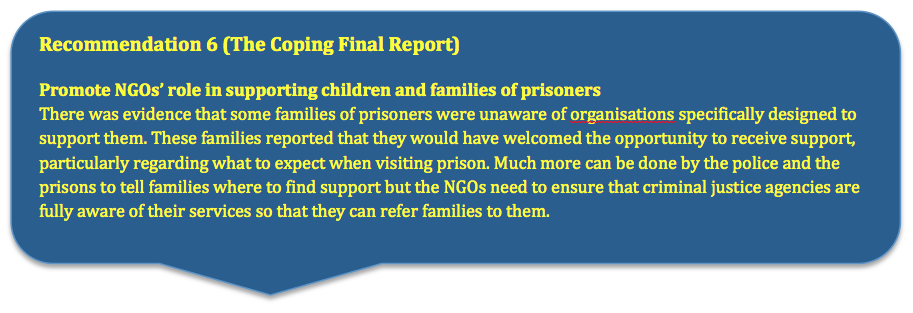
The ground-breaking Italian “Memorandum of Understanding” signed in 2014 by COPE’s Italian member organisation Bambinisenzasbarre with the Italian Minister of Justice and the National Ombudsman for Childhood and Adolescence, provides useful and comprehensive guidelines in relation to information, assistance and support for children and families of prisoners.
Article 2 of the Memorandum underlines the importance of providing children visiting prisons with age-appropriate information about visiting procedures and rules, as well as information on how security checking procedures are handled on their arrival at the prison and what can be taken to visits. The Memorandum advises that this information be provided in various languages and formats and adapted for younger children. It also asks that children be given information about their parents’ life in prison and, if possible, an opportunity to visit some of the spaces their imprisoned parents frequent, such as the canteen or recreation rooms, workshops or places of worship.
Article 5 lays out other concrete steps to be introduced in the area of information, assistance and support. It stipulates that prisoners and their children should be given appropriate, up-to-date and relevant information in every phase of the process, from arrest to release, both about procedures and possibilities for maintaining contact and about the support available to them. This includes information on counselling and support services within local authorities, NGOs and associations. The article also provides for programmes which encourage imprisoned parents to assume their parental responsibility and enhance their parenting skills.
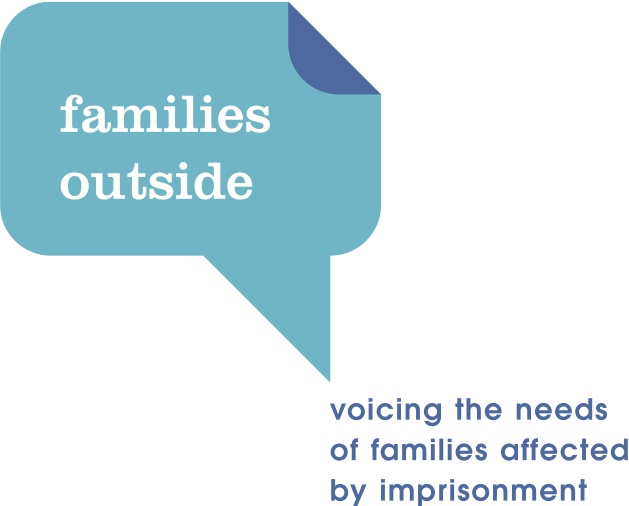 COPE wants to raise awareness about the importance of timely and age-appropriate information, assistance and support and encourage more good practice examples in this area. Across the COPE network there are several examples worth highlighting. For instance, Scottish organisation Families Outside carries out comprehensive family support work and runs a national Freephone helpline, which receives about 1,800 contacts per year. Thanks to their leadership, every prison in Scotland has an assigned Family Support Coordinator, who can provide information and support to children and families. Families Outside also works extensively with teachers and other professionals to raise awareness on the importance of maintaining family ties while a parent is in prison and possible ways of supporting children affected. They also work directly with young people and provide publications for different target groups.
COPE wants to raise awareness about the importance of timely and age-appropriate information, assistance and support and encourage more good practice examples in this area. Across the COPE network there are several examples worth highlighting. For instance, Scottish organisation Families Outside carries out comprehensive family support work and runs a national Freephone helpline, which receives about 1,800 contacts per year. Thanks to their leadership, every prison in Scotland has an assigned Family Support Coordinator, who can provide information and support to children and families. Families Outside also works extensively with teachers and other professionals to raise awareness on the importance of maintaining family ties while a parent is in prison and possible ways of supporting children affected. They also work directly with young people and provide publications for different target groups.



